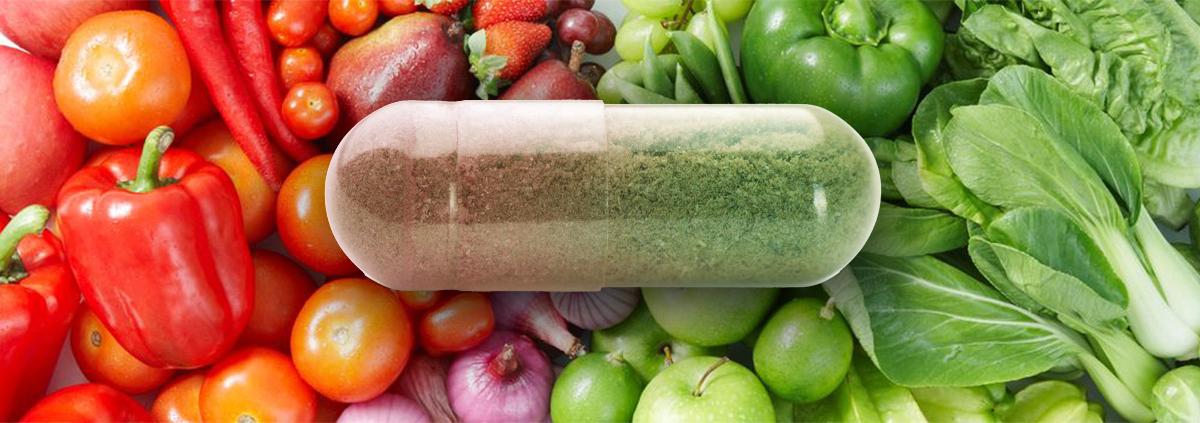Do You Need a Fruit-and-Vegetable Concentrate?
Vegetable-concentrate and fruit-concentrate products are popular now, judging by the number of ads on TV and the web; the implication is that they can replace real fruits and vegetables in the diet.
For the fruit concentrate, manufacturers remove all the fiber and water, yielding concentrates from various fruits and phytonutrient blends plus aloe vera. The supplements include 2,000 mg per serving with 17 ingredients; that works out to 120 mg per ingredient if equally divided. Are those amounts significant, especially after removing the fiber and water? Hard to say without a lot of research on each nutrient to find the effective amount, both individually and combined; for example, we don’t know if there’s an interaction between the nutrients that affects absorption and utilization.
One more type of concentrate would be single-nutrient supplements, such as a specific type of curcuminoids from a certain species of turmeric. Manufacturing is not my area; it takes some hard-core chemistry to figure out how to get the nutrient you want.
Here’s an example: curcumin is extracted from the dried root of the rhizome Curcuma longa. After drying, the process of extraction requires the raw material to be ground into powder and washed with a solvent that selectively extracts coloring matter, the curcuminoids, which then can be put into supplement form. Might there be some vitamins and minerals remaining? Probably, but that isn’t the point of the supplement. The curcuminoids are.
The Bottom Line
At the end of the day, our bodies need the fiber and water from plants to feed our microbiome. That’s why these types of products complement the vegetables and fruits you’re supposed to be eating—they don’t replace them.
I think the best way to get the best of both worlds is eating the five to ten servings of fruits and vegetables you’re supposed to eat, plus taking a multivitamin-multimineral with plant concentrates as insurance to make sure you get all the basic nutrients. If you know you’re not going to be eating as you should for a while, like an accountant working 14-hour days at tax time or a student cramming for finals, a fruit-and-vegetable concentrate might be a good addition. Then add specific concentrate-phytonutrient blends you may be missing in your diet; for example, if you hate mushrooms, take a mushroom-blend supplement. Now you’ve got all your bases covered.
What are you prepared to do today?
Dr. Chet
Reference: www.fao.org/fileadmin/templates/agns/pdf/jecfa/cta/61/Curcumin.pdf









